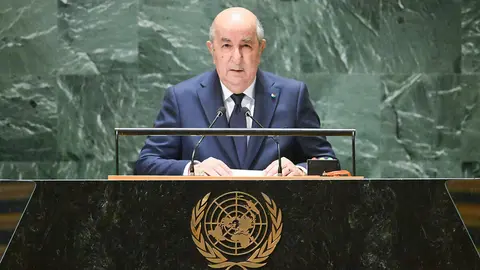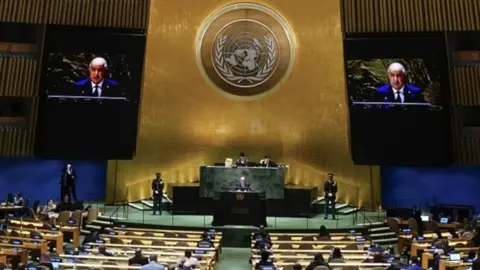The only general to challenge established military order dies

Hocine Benhadid, a native of Beja in western Tunisia, came from a large revolutionary family that had fled colonisation and settled in Tunisia. He joined the Algerian army at a very young age. He was only 16 years old.
With independence, he rose through the ranks to command one of the most important units of the Algerian Army (1976 to 1980). The 8th Armoured Division. This division had previously been commanded by Abdelmalek Guenaïzia (who became Secretary of State for National Defence), Lakehal Ayat (who became head of the secret services from 1981 to 1988) and Liamine Zeroual, who became President of the Republic in 1996. It was also the division that participated in the 1973 Yom Kippur War.
Hocine Benhadid ended his career as an advisor to the President of the Republic under Liamine Zeroual, after having commanded the 3rd military region of Bechar in southwestern Algeria in the 1990s.
In retirement, General Hocine Benhadid distinguished himself by his irreproachable moral probity. He was one of the few generals who did not get involved in business. He lived solely on his military pension.

After a long period of silence and observation, his first appearance in the media, in September 2015, on Radio M, whose director Kadi Ihsane is currently in prison, sent shockwaves through the Tagarin and El-Mouradia. He accused Lieutenant General Gaïd Salah, Deputy Minister of National Defence and Chief of Army Staff, of being implicated in a vice scandal dating back to his time as head of the Blida Reserve Officers' Training School. At the same time, he attacked Saïd Bouteflika, the president's brother, who is currently in detention, calling him mentally deranged and denouncing his management of the country's affairs by replacing his ailing brother.
He was first summoned to the premises of the General Directorate of Internal Security, where he was interrogated at length before being released. A few days later, he was arrested Hollywood-style on the outskirts of Algiers and remanded in custody. He was accused of undermining army morale.
He was released on 11 July 2016, before being given a one-year suspended prison sentence on 22 March 2018.
A year later, on 25 April 2019, at a time when Algeria was sinking into a serious crisis triggered by the heist that the head of the Algerian army, the late Gaïd Salah, had just committed by hijacking the popular revolt that had brought down the Bouteflika regime, General Hocine Benhadid broke his silence for the second time. In an open letter published in the columns of El-Watan, Algeria's leading French-language daily, he called on the army chief of staff to "ensure that democracy is no longer an empty word".
On 12 May, on the orders of Gaïd Salah, he was arrested and imprisoned in the civilian prison of El-Harrach. This time, for his outspokenness, he would pay a heavy price. He would pay, in particular, for the serious accusations made against the powerful army chief in statements made on 8 March in the columns of the same newspaper. "Gaïd Salah even receives orders from the Emirates. [...]Can you imagine an army chief of staff talking about peace and stability when he takes orders from abroad? He is nothing but a pawn," he proclaimed loudly. Unheard of from the mouth of a political opponent or a military officer.
Hocine Benhadid spent more than six months behind bars and faced a harsh prison sentence. He was only saved by the hasty release of his sworn enemy, Gaïd Salah, who suffered a heart attack in the early hours of 23 December 2019 at the Aïn-Naadja military hospital in Algiers. A week later, he was released on orders from the highest levels. He was close to the country's new strongman, General Saïd Chengriha. On 5 July, the two men appeared together in the lounges of the luxurious Beni-Messous military club in the hills above Algiers. It was the sign of the rehabilitation of this rebel general. A rehabilitation that kept him silent in the face of the authoritarian excesses of the new regime, led with an iron fist by his friend Chengriha. The man was very ill. He suffered from several chronic illnesses that finally took their toll on 1 October 2023











